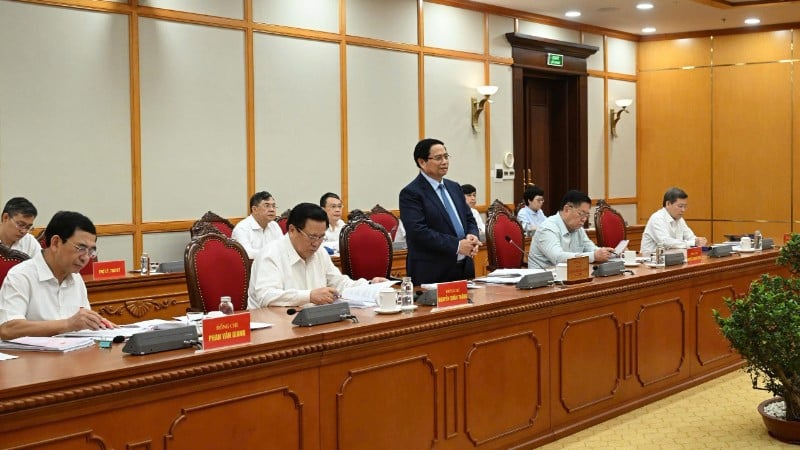
Regulation No. 366-QD/TW of the Politburo consists of 4 chapters and 19 articles, stipulating the purpose, requirements, principles, and basic contents of reviewing, evaluating, and classifying the quality of collectives and individuals in the political system by term, annually, quarterly, or when necessary. This regulation applies to Party committees, Party organizations, leadership and management collectives, organizations, agencies, units (hereinafter referred to as collectives) and individuals in the political system from the Central to the grassroots level.
The promulgated regulations aim to:
(1) Ensure unity and uniformity in review, assessment and quality classification of collectives and individuals in the political system.
(2) Promote the spirit of self-criticism and self-reflection, self-reflection, self-correction, see strengths to promote, limitations and shortcomings to overcome; proactively detect and prevent signs of degradation, "self-evolution", "self-transformation", corruption, waste, and negativity, contributing to improving the leadership capacity and fighting strength of Party organizations, cadres, and Party members, and building a clean and strong Party.
(3) Develop criteria to evaluate collectives and individuals in the political system to determine the level of task completion as a basis for appointment, planning, use, treatment, reward, screening, replacement, discipline, temporary suspension from work, dismissal, resignation, and dismissal of cadres with political ideology, ethics, lifestyle degradation, violations of Party regulations and State laws, limited capacity, failure to complete assigned tasks, contributing to building a team of professional, responsible, dynamic, and creative cadres to serve the people and businesses, contributing to the country's development in the new period.
Regulations require:
(1) Unify the principles, criteria framework, methods, authority, processes, and procedures for assessing collectives and individuals in the political system according to decentralization, ensuring consistency and unity from the central to grassroots levels.
(2) Evaluation must be based on work performance, task performance results, and specific products associated with job position, responsibilities, and tasks according to quantity, progress, and quality.
(3) Raise awareness and responsibility of the collective, especially leaders and each cadre and party member; ensure that review, evaluation and classification work must be democratic, impartial, objective, scientific , true to substance and against formality.
(4) Synchronize with innovation in Party leadership methods and state administrative reform, especially in the context of digital transformation.
The regulation clearly states the principle:
(1) Ensure the leadership of the Party; strictly implement the principle of democratic centralism; conduct self-criticism and criticism seriously, receptively, in the spirit of construction, maintaining solidarity, unity, authority and responsibility. Conduct assessment in a consistent, continuous, multi-dimensional manner, with criteria and through specific products; combine qualitative criteria with quantitative criteria, in which, pay special attention to quantitative criteria on results and effectiveness of task implementation; classification accurately reflects the actual level of task completion, is verified, and is consistent with assigned functions and tasks. Collective and individual reviews are conducted periodically every year or when required. Assessment is conducted regularly and continuously on the basis of plans, work programs, assigned tasks and serves as the basis for assessment and classification for the whole year and term.
(2) Take the results of political task implementation as the focus, political qualities, ethics, and lifestyle as the foundation, and management and operational methods and capacity as the basis for deciding on evaluation results. Link individual responsibility with collective responsibility; link the results of leaders, leaders, and managers with the results of localities, organizations, agencies, and units. Strengthen inspection and supervision to ensure unified and synchronous implementation throughout the political system.
(3) The Politburo prescribes a framework, principles, and guidelines for Party committees, Party organizations, organizations, agencies, and units to continue to specify, especially the review content, and develop a set of assessment criteria suitable to the characteristics of the industry, field, responsibilities, and tasks according to the management hierarchy, ensuring unity and synchronization according to the requirements in Articles 6, 10, and 18 of this Regulation.
(4) Implement uniformly the assessment and classification of reviewed collectives and individuals. The results of the assessment and classification of cadres, civil servants, public employees, and workers are the basis for assessing and classifying the quality of party members. Assess and classify the quality of party members based on the results of performing tasks at the party cell; assess and classify the quality of cadres, civil servants, and public employees at the highest positions; assess and classify party organizations, organizations, agencies, and units based on the results of assessing the Party Committee, the collective leadership, management, and cadres and party members under their management authority.
(5) Promote decentralization, delegation of authority, and promote the responsibility of leaders in developing work plans and assigning tasks appropriate to each collective and individual in line with goals and work products; the level directly managing and assigning work shall evaluate and classify it; ensure connectivity and consistency in personnel work; use evaluation results as a basis for screening, planning, training, fostering, rotating, arranging, using, and appointing cadres; at the same time, as a basis for replacing, temporarily suspending work, removing from office, resigning, and dismissing leaders and managers; have measures to manage and use cadres, civil servants, public employees, and workers in accordance with the level of task completion or dismissing them when they do not meet requirements.
(6) Promote the responsibility of Party committees, collective leadership, especially heads, in evaluating cadres under their management according to decentralization.
The Regulation clearly states the bases for review, assessment and classification, which are: (1) Party Charter, resolutions and relevant Party regulations; (2) Performance of functions, tasks, powers, responsibilities and results of performance of tasks of collectives and individuals assigned by competent authorities.
This Regulation replaces Regulation No. 124-QD/TW dated October 4, 2023 of the Politburo on annual review, assessment and classification of quality for collectives and individuals in the political system; effective from the date of signing and disseminated to Party cells.
Details of Regulation No. 366-QD/TW see here: Regulation-No.-366-of-the-Ministry-of-Politics-on-quality-inspection-and-evaluation-of-classification-for-collectives.doc
Source: https://nhandan.vn/bo-chinh-tri-quy-dinh-ve-viec-kiem-diem-va-danh-gia-xep-loai-chat-luong-doi-voi-tap-the-ca-nhan-trong-he-thong-chinh-tri-post909215.html








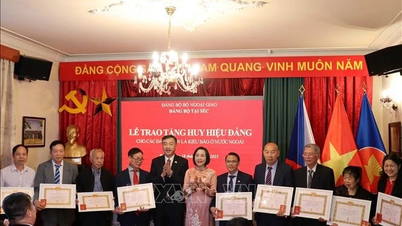

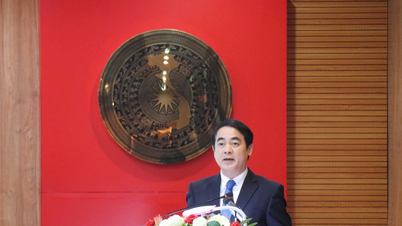


![[Video] Issuing Conclusion on implementing decentralization and delegation of power in 2-level local government](https://vphoto.vietnam.vn/thumb/402x226/vietnam/resource/IMAGE/2025/9/20/b455c04a366c425283a972f3cacfc947)
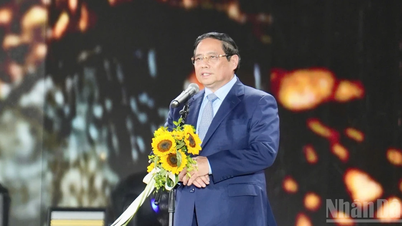




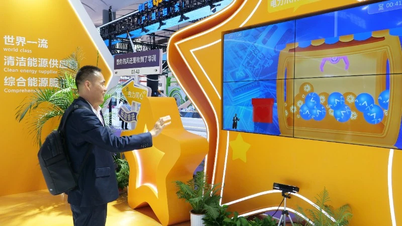























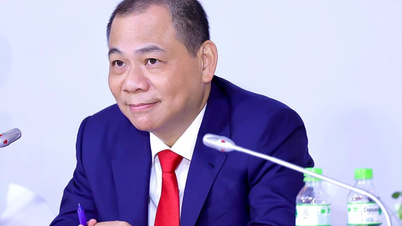





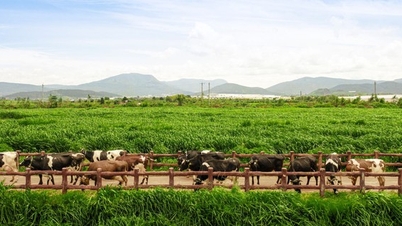

![[VIDEO] 50 years of Petrovietnam: Keeping the legacy alive, creating national energy](https://vphoto.vietnam.vn/thumb/402x226/vietnam/resource/IMAGE/2025/9/20/dff4ddb3d15a4076ba5f67fcdc6c7189)















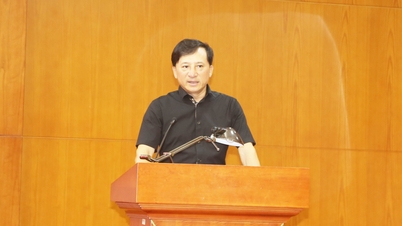


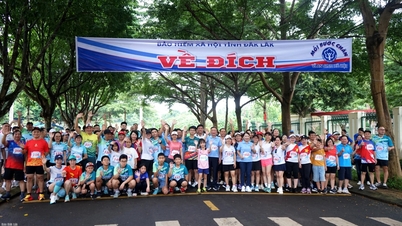



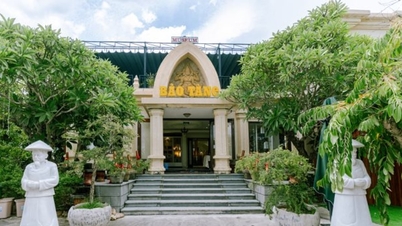


















Comment (0)